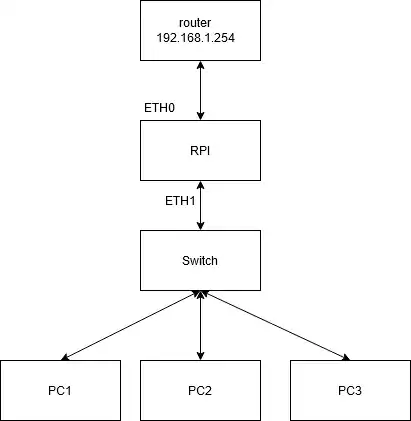I am having issues finding the correct approach to take with my RPI setup. I have a router that does not let me disable DHCP and subsequently wont let me modify the DNS associated.
I would like all machines connected to my RPI via a switch connected to eth1 to use the same DNS.
What I have done so far? I am able to setup a bridge between eth0 and eth1 like so:
/etc/network/interfaces
auto eth0
iface eth0 inet manual
auto eth1
iface eth1 inet manual
auto br0
iface br0 inet manual
This effectively has let me create a bridge and provides the DHCP from the router over eth1 to all computers connected to the switch.
The problem now is that even if i set the dns in a static way of eth1,br0 or on eth0 it changes only for the RPI not for any computers connected to the switch on eth1.
For example:
auto eth0
iface eth0 inet static
address myrpiIP
netmask 255.255.255.0
network 192.168.0.0
broadcast 192.168.0.255
gateway 192.168.1.254
dns-nameservers 0.0.0.0
dns-search local
Whilst the dns-nameserver works on the RPI itself, as mentioned all machines connected via eth1, irrelevant of if i define a nameserver for all interfaces seems to be served directly by the router:
For example on a windows machine connected to the switch connected to eth1:
Default Gateway . . . . . . . . . : 192.168.1.254
DHCP Server . . . . . . . . . . . : 192.168.1.254
here is a rough diagram, (minus the no connection part on the pc, as it now works):
Any help would be appreciated.
